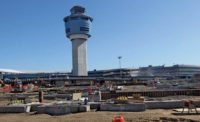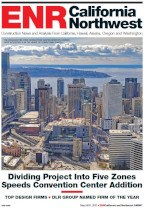Big River Steel in Osceola, Ark., is speeding up construction after successfully defending against a legal challenge from one of its chief competitors, local neighbor Nucor. Osceola's mayor is pleased.
"Everything looks good for this plant now," says Dickie Kennemore. "Nucor didn't make us too nervous. You have to remember that the biggest investor in Big River is [the] Koch brothers, and they're bigger than Nucor."
The $1.1-billion project also has had significant support from state lawmakers. A $125-million bond package helped to finance the work and locked in Osceola as the plant site. "Once we got our air permits from the EPA, I knew the plant would get built," Kennemore says.
In federal court in Jonesboro, Ark., Nucor's lawsuit alleged that Big River would violate terms of the Clean Air Act and that state officials mishandled the formal objections raised throughout the plant's permitting process. Nucor has since appealed the Feb. 25 dismissal.
But why would a new steel plant build right down the street from its biggest competitor? "Thyssen Krup considered this site for its plant several years ago but, instead, went with Mobile, Alabama, because they had a bond package that was basically offered at zero percent interest," Kennemore says. "But that experience taught us we had a supersite, and there were only five supersites in the South."
A supersite must have five assets, Kennemore notes: interstate, railroad, an electricity tie-in, a waterway and un- limited acreage. "This had nothing to do with Big River wanting to build a plant right next to Nucor," he says. "It's steel- mill heaven."
Nucor's lawsuit underscores a source of worry for steel producers in 2015, says Becky Hites, the president of Steel Insights LLC. "In terms of production, it will be an OK year, but not for the U.S. mills. In fact, in late March, actual steel-mill closures were announced, which never happens in this industry. It will very likely be a poor year for steel-producing companies in the U.S. and abroad."




Post a comment to this article
Report Abusive Comment